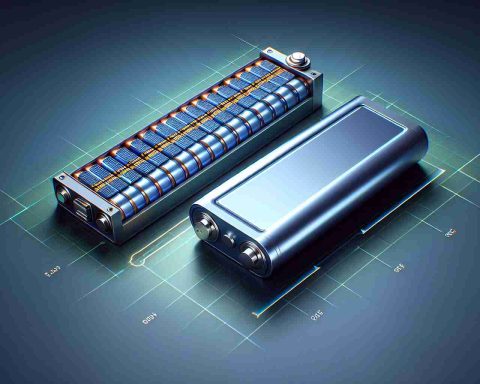The Future Unplugged: How Electric Bike Kits Are Reshaping Urban Transportation
In the quest for cleaner and more efficient urban transport solutions, electric bike kits are emerging as a game-changer. With the market anticipated to leap from $1.2 billion in 2023 to $2.19 billion by 2032, these kits present a compelling case for transforming the daily grind of city commuting.
Inventive Urban Mobility
Electric bike kits offer three crucial components: electric motors, batteries, and controllers, enabling anyone with a conventional bike to enter the electric era. This transformation is not merely a mechanical enhancement; it represents a shift towards more personalized and eco-friendly commuting options. The modular nature of these kits allows cyclists to tailor their rides, balancing cost with capability, all at a fraction of the price of a new electric bike.
Green Wheels on the Rise
As urban centers swell, the demand for efficient and sustainable commuting solutions skyrockets. Electric bikes empower commuters to glide through traffic-laden streets, reducing congestion and pollution simultaneously. This environmentally conscious shift is further driven by consumers’ desire to lower their carbon footprint and embrace more active lifestyles. Innovations like smart technology integration and improved battery designs are set to propel this market forward, making electric bike kits irresistible to modern urbanites.
The Hidden Potential of Electric Bike Kits
Beyond the consumer market, large logistics companies are investing heavily in these kits. By incorporating electric bikes into their delivery fleets, firms like FedEx and UPS are revamping their urban logistics strategies, showcasing the versatility and efficiency of electric bike kits in a business context.
The evolution of electric bike kits is set to redefine city transport, making it cleaner, faster, and more personalized. The road ahead is electric, and the future of commuting is ready to be reimagined.
Unleashing the Power: How Electric Bike Kits are Transforming City Landscapes
Electric bike kits are revolutionizing urban transportation, poised to take the market from $1.2 billion in 2023 to a projected $2.19 billion by 2032. These kits are not just about convenience—they represent a major shift in how people navigate city life. With increasing interest, it’s crucial to delve deeper into what makes these kits appealing.
Specifications and Features
Electric bike kits are composed of three main components: electric motors, batteries, and controllers. Their modular design allows for significant customization, suiting a wide range of preferences and budgets. Innovations in battery life and smart technology integrations are making these kits more efficient and user-friendly. Features such as Bluetooth connectivity and app-enabled settings are becoming standard, enabling riders to monitor performance and optimize energy use with their smartphones.
Trends and Market Insights
The rise in electric bike kits aligns with current trends pushing for sustainable living and reduced urban congestion. Cities are increasingly focused on diminishing carbon emissions, and e-bikes offer a clear path forward. The move towards greener transportation options is further supported by government incentives and urban infrastructure improvements like bike lanes and parking facilities.
Comparisons with Fully Electric Bikes
Compared to fully electric bikes, kits offer the flexibility to retrofit one’s existing bicycle, making them an attractive option for cost-conscious consumers. This flexibility is particularly beneficial for users who may want to upgrade specific components over time rather than investing in a whole new vehicle. Unlike complete electric bikes, kits come without the learning curve or the hefty price tag, making them accessible to a broader audience.
Use Cases and Applications
Beyond personal commutes, electric bike kits are playing a key role in urban logistics. Companies like FedEx and UPS are utilizing these kits in their fleets to facilitate efficient, emission-free deliveries in congested city streets. This shift not only reduces operational costs but also decreases environmental impact, highlighting the versatility of electric bike kits beyond the consumer market.
Limitations and Challenges
While electric bike kits offer many benefits, potential users must consider their limitations. Battery life and charging infrastructure remain challenges, particularly for long-distance or high-frequency riders. Additionally, the initial installation of the kit may require technical expertise, which can deter some potential users.
Pricing Overview
The cost of electric bike kits varies significantly based on power output and additional features. Entry-level kits may start around $300, while high-end versions with advanced battery technology and smart integrations can surpass $1,000. Despite the range, these kits remain a more affordable alternative to purchasing new electric bikes.
In conclusion, electric bike kits are not just reshaping commuting patterns but are also driving broader changes across urban landscapes. With ongoing innovations and increasing adoption, the future of city transport is set for an electric makeover. For more on the latest market trends and insights, visit the IEEE homepage.



















